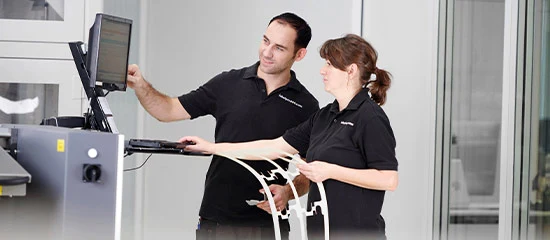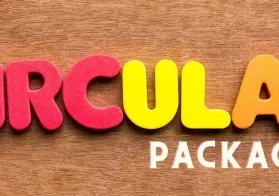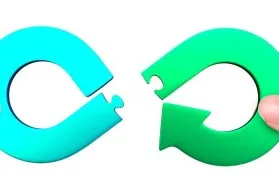
Top Articles
Basic knowledge packaging: between product safety and marketing - What is primary packaging?
There are many types of packaging and they are very different. This applies not only to the variety of shapes and materials - but above all to their respective intended use. In logistics, a fundamental distinction is therefore made between primary, secondary and tertiary packaging. We explain what primary packaging is and what special requirements it has to fulfil.
Circular packaging design guideline: The guide for recyclable packaging
What are the requirements for packaging to be optimally recyclable? What possibilities are there for manufacturers to combine appealing packaging design and excellent recyclability? The Circular Packaging Design Guideline of the University of Applied Sciences (FH) Campus Vienna shows which means can be used to efficiently close material and product cycles.
Quotas for the circular economy: EU targets for better recycling
The topic of circular economy is by no means new in the EU. Quite the opposite: the EU Commission's circular economy package was already adopted in 2018, after three years of discussions on the content of the proposals. Now, according to the will of the European Parliament, a tightening of waste regulations is on the agenda. Among other things, this is intended to improve the market opportunities for recycled materials. But it is not least about increasing the share of recycled materials - for example in the manufacture of plastic products.
Topic related articles
Basic knowledge: what is secondary packaging?
As far as direct contact with the product is concerned, secondary packaging really does take a back seat. But this does not make them any less important: they serve as additional protection for primary packaging and packaged goods, play a central role in shipping and are also indispensable in marketing. Reasons enough to take a closer look at secondary packaging.
Basic knowledge packaging: between product safety and marketing - What is primary packaging?
There are many types of packaging and they are very different. This applies not only to the variety of shapes and materials - but above all to their respective intended use. In logistics, a fundamental distinction is therefore made between primary, secondary and tertiary packaging. We explain what primary packaging is and what special requirements it has to fulfil.
Circular packaging design guideline: The guide for recyclable packaging
What are the requirements for packaging to be optimally recyclable? What possibilities are there for manufacturers to combine appealing packaging design and excellent recyclability? The Circular Packaging Design Guideline of the University of Applied Sciences (FH) Campus Vienna shows which means can be used to efficiently close material and product cycles.
Quotas for the circular economy: EU targets for better recycling
The topic of circular economy is by no means new in the EU. Quite the opposite: the EU Commission's circular economy package was already adopted in 2018, after three years of discussions on the content of the proposals. Now, according to the will of the European Parliament, a tightening of waste regulations is on the agenda. Among other things, this is intended to improve the market opportunities for recycled materials. But it is not least about increasing the share of recycled materials - for example in the manufacture of plastic products.











